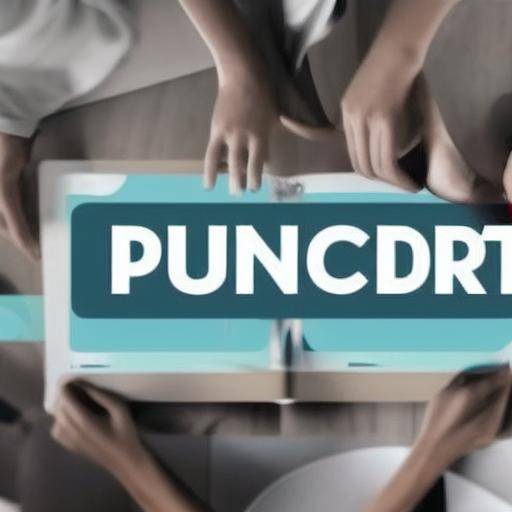
At present, having a good credit score is essential to access loans, credit cards and get better interest rates on mortgages and loans. However, keeping a healthy credit score can be a challenge for many people. Fortunately, there are effective strategies that will allow you to improve your credit score quickly. In this article, we will explore practical tips and actions you can take to boost your credit score efficiently and effectively.
Why is it important to have a good credit score?
Before we enter strategies to improve your credit score quickly, it is crucial to understand the importance of maintaining a positive credit history. A good credit score not only gives you access to loans and credit lines, but can also influence aspects such as housing rental, insurance and, in some cases, even in employment. In addition, a solid credit score can mean lower interest rates and more favorable credit conditions.
Strategies to increase your credit score quickly
History and credit history
One of the first steps to improve your credit score is to review your credit history. Make sure to identify and correct any error or discrepancy that may affect your score. It is crucial that you verify the accuracy of the information provided in your credit report, including late payments, collection accounts, or possible frauds.
Responsible management of credit cards
The level of indebtedness in your credit cards has a significant impact on your credit score. Using less than 30% of the credit limit available on your cards can positively influence your score. Therefore, try to maintain low balances or, ideally, fully paid balances every month. Avoid the temptation to open multiple credit cards impulsively, as this could negatively affect your score.
Timely payment of debt
The timely payment of your debts is vital to the health of your credit history. Overdue or unfulfilled payments can cause significant damage to your score, so it is essential to avoid delays in loan payments, credit cards and other financial obligations.
Diversification of credit
Keeping a diversity of credit types can benefit your credit score. For example, having a car loan, a mortgage, and well-managed credit cards, can demonstrate your ability to handle different types of debts responsibly, which can be considered a positive factor.
Avoid opening new unnecessary lines of credit
Each time you request a new credit line, a consultation is generated in your credit report, which can momentarily affect your score. Limiting the opening of new credit accounts can help preserve your credit score.
Correct errors in your credit report
If you find inaccuracies in your credit report, it is important that you take steps to correct these irregularities. Contact the corresponding credit agencies to resolve any error that may be affecting your credit score.
Conclusion
In short, improving your credit score quickly involves implementing responsible and strategic financial practices. By following the above-mentioned tips and maintaining sound financial habits, you will be on your way to a healthy credit score. Remember that patience and consistency are key; although the impact of these strategies may not be immediate, over time you will see positive results in your credit history.
Frequently asked questions
How long does it take to increase my credit score?
Although drastic changes in your credit score do not usually occur overnight, with solid financial practices, it is possible to notice improvements in a few months. However, reaching a solid credit score can take longer, depending on your specific situation.
Does the closing of credit accounts affect my score?
Yes, closing credit accounts can affect your score, especially if those accounts had outstanding balances. This may vary according to your individual situation, but in general, keeping credit accounts open and managing them responsible can contribute positively to your credit score.
How can I regularly monitor my credit score?
There are several credit agencies that offer services to monitor your credit score on a regular basis. You can also request free credit reports annually to review your credit history and detect potential problems.
Can I improve my credit score if I have outstanding debts?
Yes, even if you have outstanding debts, it is possible to improve your credit score by taking measures such as making timely payments, reducing outstanding balances, and correcting possible errors in your credit report.
Does my work history influence my credit score?
Your specific work history does not directly influence your credit score, as this is based on your credit history. However, your ability to maintain stable and good-income employment can indirectly influence your ability to manage your debt, which may eventually affect your score.
Can I get a guaranteed loan to improve my credit score?
Yes, guaranteed loans, which require a guarantee or backup, such as a fixed-term deposit, can be an option to improve your credit score. By guaranteeing a loan, you demonstrate credit responsibility and, if you manage it correctly, it can have a positive impact on your credit history.
In conclusion, improving your credit score quickly requires patience, discipline and a strategic approach. By implementing the above strategies and maintaining constant monitoring, you will be on your way to a solid and beneficial credit history for your long-term financial health.






























